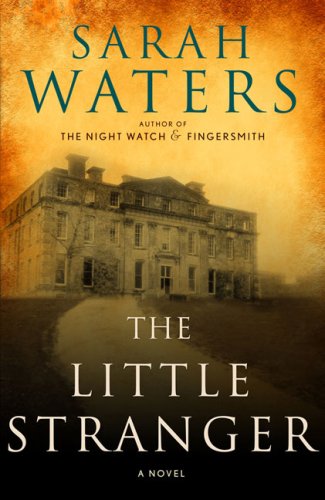The Little Stranger
There is a fundamental enigma at the heart of this excellent novel set in England in the austere and grim years after the Second World War: is Hundreds Hall, the elegant but crumbling house belonging to the Ayres family, haunted, or are the weird phenomena merely the perceptions of the rather disturbed inhabitants? Dr Faraday, an unmarried general practitioner in his late thirties, whilst on a visit to attend to a servant in the house gradually gets to know the Ayres family – the middle-aged widow Mrs Ayres and her two grown-up children, Roderick and Caroline. Faraday comes from a working class background and has had to work hard to achieve and maintain his professional position, and the clash between his social class and that of the gentrified Ayres is a main thread in the story. Childhood memories of a visit to the Hall, where Faraday’s own mother, who died young, was a nursery maid just after World War One, provide the impetus for his intense interest and obsession with the house and its occupants. Faraday is the rationalist who explains away the seemingly paranormal, but is helpless as tragedy afflicts both the Ayres and then Faraday himself.
Sarah Waters has quickly gained a well-deserved reputation for her fiction, and this book is excellently narrated in the first person by Dr Faraday, with whom the reader develops an ambiguous relationship, for at times he seems obtuse and selfish, while at others, the readers empathises with the perplexities he is faced with. The decline of landed gentry and the rise of new wealth in England still struggling to recover from the War is very much the leitmotif, as the telling historical context is accurate and credible.










